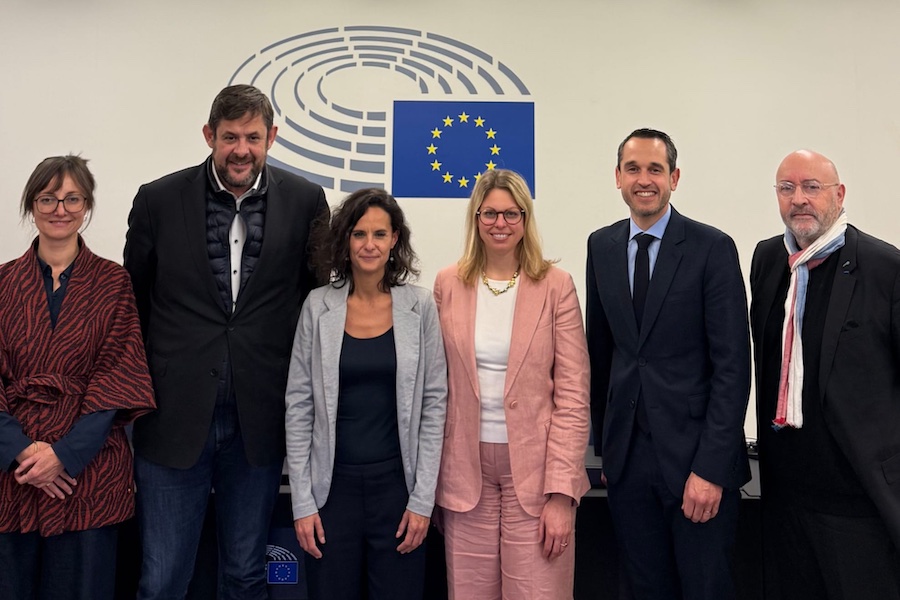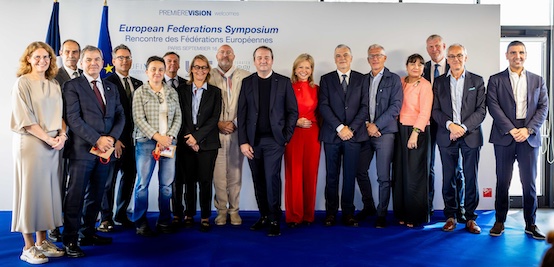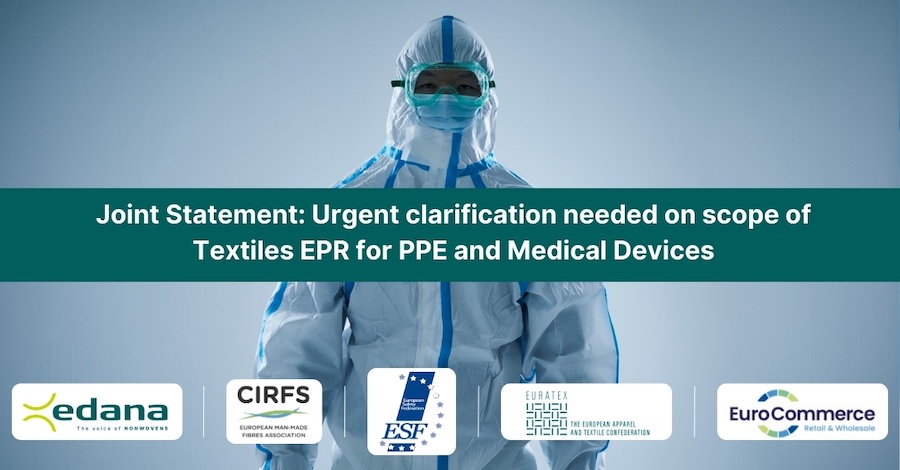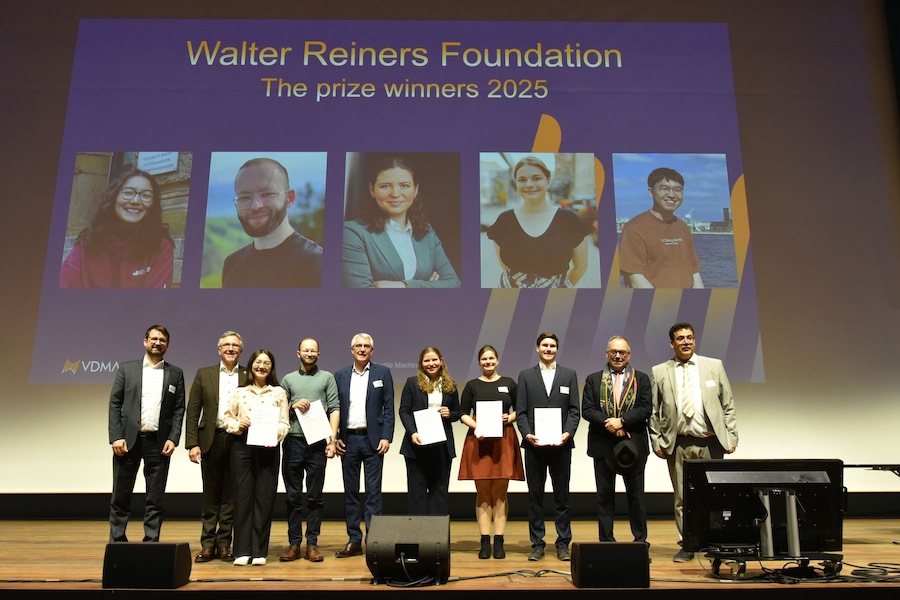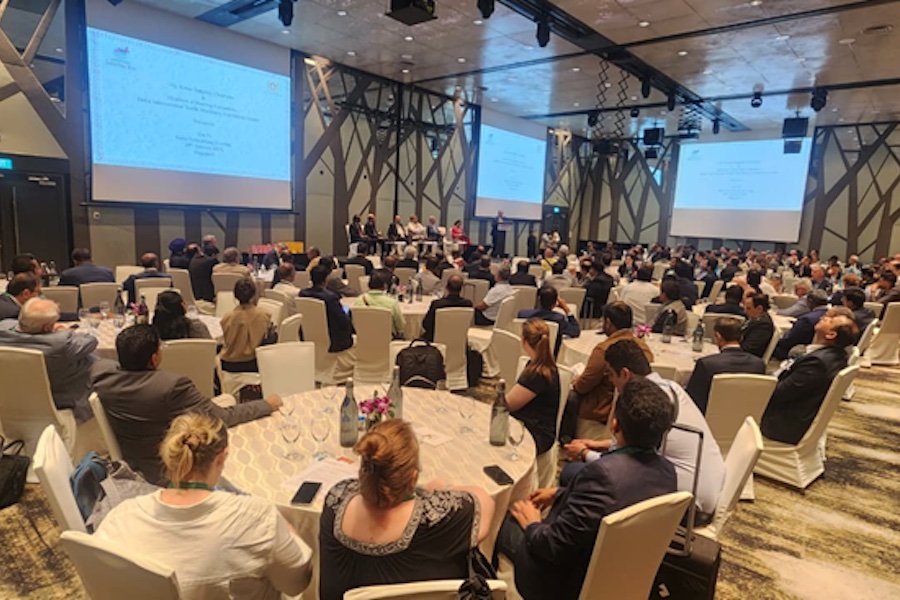#Associations
Joint statement on TCLF Social Partners’ priorities for the next European Mandate (2024 – 2029)
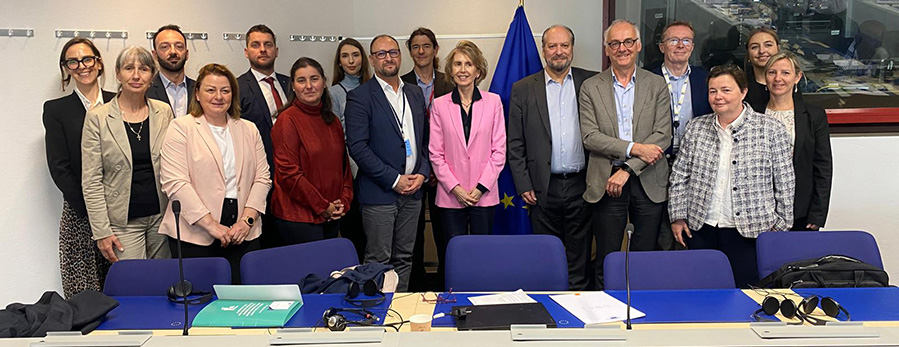
The TCLF Social Partners are all signatories to the Antwerp Declaration for a European Industrial Deal and express their full support for a European Industrial Deal to complement the Green Deal and keep quality jobs in Europe.
The European TCLF sectors provide over 1.5 million jobs in the EU (Textiles and Clothing: 1,300,000, Tanning and leather: 34,531 and Footwear: 222,000) and have a combined turnover of over €200 bn (T&C: €170 bn, T&L: €7.3 bn and Footwear: €23.2 bn). However, the industries continue to face a range of challenges, including fierce global competition, high energy prices, an ageing workforce, and a huge increase in new legislation. These challenges are especially tough due to over 99% of companies in the TCLF sectors being SMEs. As such, the European Social Partners call for increased focus and commitment in the next EU mandate to ensure that the TCLF sectors can become green and digital while remaining competitive on the global market and that no region, company or worker is left behind.
An EU Industrial Deal focused on ensuring quality TCLF jobs in Europe
In relation to the Antwerp Dialogue, CEC, Cotance, Euratex and industriAll Europe have also signed up to a specific joint statement focused on the social dimension of an EU Industrial Deal which is vital to ensure its success and social acceptance. The following demands from the TCLF Social Partners are essential to guaranteeing quality TCLF jobs in Europe:
• Ensure a Just Transition for our industries and workforce
The TCLF sectors are under pressure to meet the green and digital twin transitions while competing on a fierce global market and facing a decreasing consumption. As such, the TCLF Social Partners again highlight the aforementioned joint statement focused on the social dimension of an EU Industrial Deal, stressing the following.
While the scale of industrial policy and disruptive state subsidies elsewhere, in particular in the US and China, has dramatically increased the European competitive disadvantage to those countries, the EU must develop a robust industrial strategy that leads to retention and creation of quality industrial jobs across Europe. An industrial policy must not only be about supporting ‘clean tech’ investors, but also supporting the transformation of existing industrial assets in the founding industries, which are essential parts of the strategic value chains.
The green and digital transformation has never been more challenging for both companies and workers. It must go hand in hand with a Just Transition framework which ensures the effective anticipation and management of employment and skills; provides security for companies and employees faced with these industrial transitions, underpinned by the strong and stable involvement of social partners at all levels; and quality training.
The availability of financial resources is necessary to stimulate industrial investment in innovative green and digital technologies and production methods in Europe, with guarantees to ensure the retention and creation of quality jobs, while ensuring a fair distribution of the wealth created. Strict criteria on access to EU funds should promote a fair transformation of our industries, focusing on social cohesion, quality employment and promotion of social dialogue.
• Develop a re-skilling and up-skilling agenda
A renewed industrial deal cannot be enacted without skilled workers. As such, re-skilling and up-skilling policies must be put at the core of a renewed European Industrial Deal. Social partners have a critical role to play in anticipating and managing skills needs and in organising up-skilling and re-skilling. However, this work must have concrete support for TCLF companies above and beyond the EU Pact for Skills, noting the specific challenges facing the TCLF sectors which are made up of SMEs spread across many EU countries with an ageing workforce. The need to attract young people and ensure skilled workers for the future is essential, and support from policy makers at all levels is needed to make this a reality.
• Promote social dialogue and social partners' involvement
The role of social dialogue is of upmost importance when industrial transformation is required, whether via collective bargaining, skills analysis and planning, or the implementation of new regulations. Sectoral social partners play a significant role in advocating for a favourable regulatory environment for business, which enables shaping mutually agreeable working conditions and wage setting through common positions and declarations, established collective bargaining systems in many Member States, and we insist that social partner autonomy should be respected. With a huge increase in EU legislation aimed at the European TCLF sectors, the privileged role that the TFEU gives the social partners must not be forgotten and EU policymakers should consistently ensure that sector-specific impact assessments are performed and social partners are consulted within the appropriate time frame on all employment-relevant topics, in particular on those initiatives that have an impact on the labour market.
• Ensure a sensible, stable and coherent regulatory environment for our industries
The TCLF sectors operate in a highly complex, competitive and globalised field while trying to deliver on the green and digital transformation. It is important that the EU regulatory framework for our industries is sound, business-friendly, stable and coherent, and efforts should be made to improve the rules of the Single Market and a uniform enforcement of rules by EU customs and market surveillance authorities to better streamline and articulate regulations. Furthermore, extensive impact assessments and competitiveness checks should be carried out by the Commission before proposing new regulations, including closely monitoring investment, skills and innovation capacity. When it comes to sustainability and circularity aspects, such impact assessments and competitiveness checks should be product-specific within the TCLF sectors, because what is true and feasible for one product is not necessarily true for another.
• Access to energy and raw materials
Access to green and affordable energy for the TCLF sectors has become even more important since the energy crisis, with large amounts of decarbonised energy remaining central to the green transition. As such, the TCLF Social Partners call for additional measures to ensure that this becomes a reality to enable TCLF manufacturing to become more sustainable while competing with imports from other regions which benefit from subsidised energy sources. Furthermore, energy is not the only input into the TCLF industries and EU efforts are needed to secure access to raw materials with the development of traceability and transparency wherever it is legally required (EU Deforestation Regulation), including in international trade, over and above fair reciprocity.
• Free and fair trade to ensure a level playing field
The TCLF Social Partners insist on free and fair trade for a sustainable global market. This includes preventing low-cost products being dumped on the open EU market with no respect for international labour law or EU environmental and marking and labelling standards. While it is hoped that the EU Textiles Strategy will have some impact on improving the identification and authenticity of TCLF materials, components and products, the ecosystem’s SMEs will need support for the implementation of the newly adopted EU Corporate Sustainability Due Diligence Directive and the EU Regulation on the ban of products made with forced labour (expected to be adopted later in 2024). The TCLF Social Partners call for specific measures including using, where necessary, EU trade defence instruments, EU trade support measures, increased monitoring of third countries which benefit from Free Trade Agreements or the EU Generalised Scheme of Preferences, and strengthening market surveillance to establish a level playing field. This is essential to ensure that the TCLF sectors can become more sustainable while facing tough global competition. In this regard, it is necessary to point out that circa 80% of TCLF products consumed in the EU internal market are imported, mainly from Asia.
• Sustainability and increased demand for products made in Europe
While establishing a level playing field is essential to allow the TCLF sectors to become more economically sustainable, it is also necessary to increase the demand for green TCLF products made in Europe, noting that these products can often be more costly to produce. While the TCLF Social Partners support the move to more sustainable and high-quality products to be made in Europe, which will hopefully also equate to decent pay and quality jobs in Europe, there needs to be an increase in demand for these sustainable products. As such, the TCLF Social Partners call for incentives for customers and consumers, so that they can buy sustainable products made in Europe, and for public procurement in the EU to focus on the green and social aspects of production.
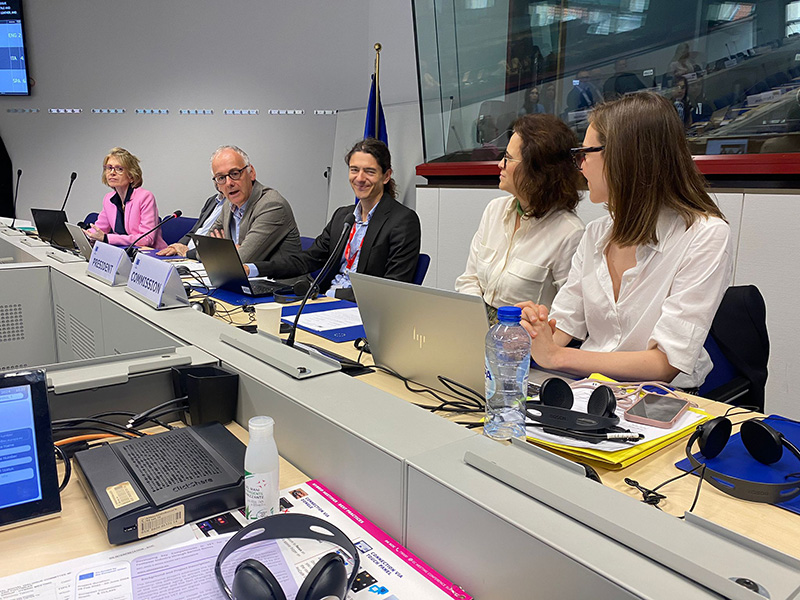
The TCLF Social Partners look forward to working with the new EU policy makers in the next EU Mandate (2024 – 2029) and stand ready to work with them to deliver an EU Industrial Deal focused on ensuring quality TCLF jobs in Europe.



